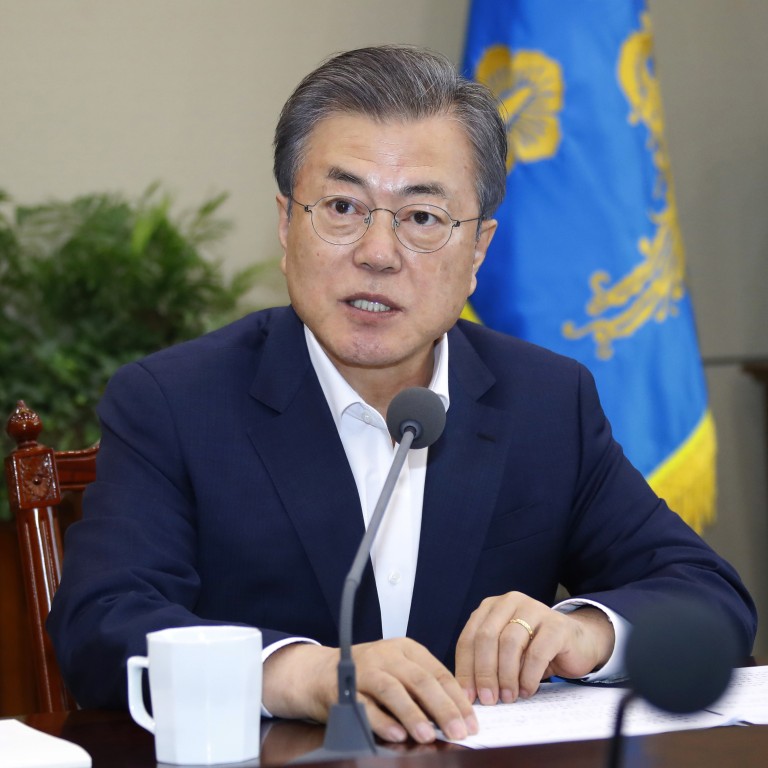
South Korea’s proposed anti-corruption unit is a thinly disguised power grab for Moon Jae-in – and it won’t work
- If Moon can create a special new agency to investigate corruption, we can expect him to use it against his political opponents, who have been emboldened by his failing diplomatic and domestic policies
The controversy in Seoul over establishing a special unit to investigate corruption deepens South Korea’s left-right divide in a struggle sure to test the country’s democratic system. In his zeal to carry out his campaign pledges and sweeping reforms, President Moon Jae-in wants broader powers to solidify his regime and sublimate conservative voices.
The drive to enhance the president’s powers marks another step in a process reminiscent of how authoritarian leaders seek to solidify their positions and suppress foes. It might seem an exaggeration to compare Moon with Stalin or Mao, but it is not difficult to fear the rise of a system that stifles speech, silences critics and jails opponents.
Now, the government is proposing a special agency or branch as yet another instrument for doing away with the opposition. Surely the pervasive national police and National Intelligence Service can deal with all conceivable violations of the law. Why enlarge the scope of these already formidable organisations? The answer seems to be what every authoritarian leader craves: his own elite force to carry out his will beyond organisations that may not be so easy to manipulate.

Authoritarian leaders typically resort to strong-arm methods to guarantee their foes refrain from criticism. Moon’s entire political career rests on his stated belief in democratic principles, but his move to set up what could turn into a special office of loyalist retainers has ominous overtones.
The rationale for such a force is that South Korean society is riddled with corruption, power-grabbing by ambitious unprincipled politicians backed up by vast sources of wealth, making it impossible to govern. Isn’t that how authoritarian, non-democratic governments justify their actions, stripping away democratic principles, regardless of national constitutions, laws and individual rights?
For Moon, centralising power will not be easy. South Korean conservatives may be divided politically but they remain powerful. The Liberty Party holds the second-highest number of seats in the national assembly after the ruling Minjoo (Democratic) Party. The ranks of the Liberty Party extend from business and military leaders to ordinary people who demonstrate in central Seoul on Saturdays, waving Korean and American flags.
Traditional conservatism in South Korea represents a bulwark of business success, defence against North Korea and national unity in a culture often torn by regional and social differences. Some of Moon’s advisers may think they can reweave the fabric of Korean society, but that’s not going to happen. South Korea is not like an African or Latin American dictatorship in which one-man rule is the name of the game.
Donald Kirk is the author of three books and numerous articles on Korea

